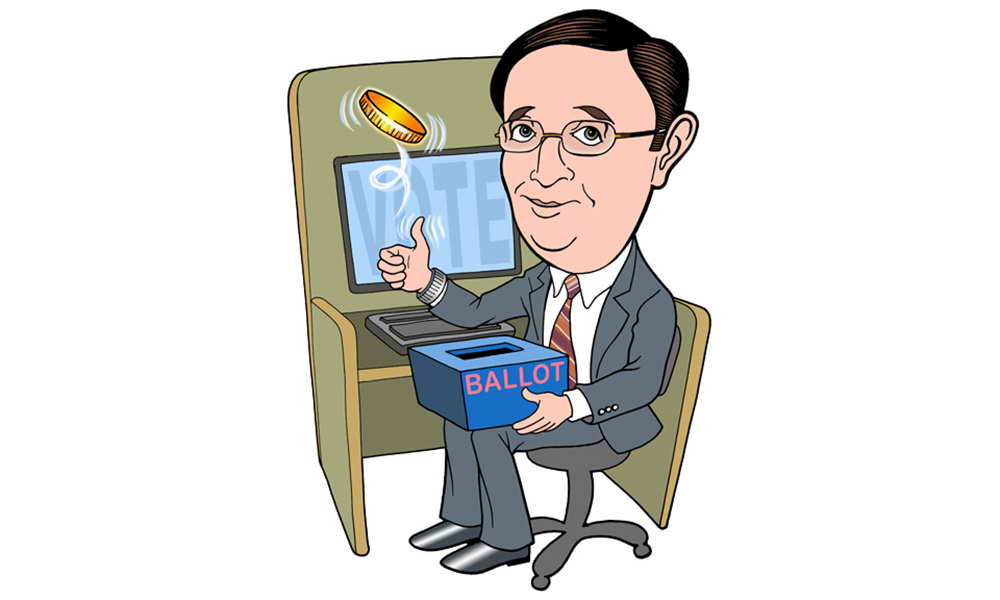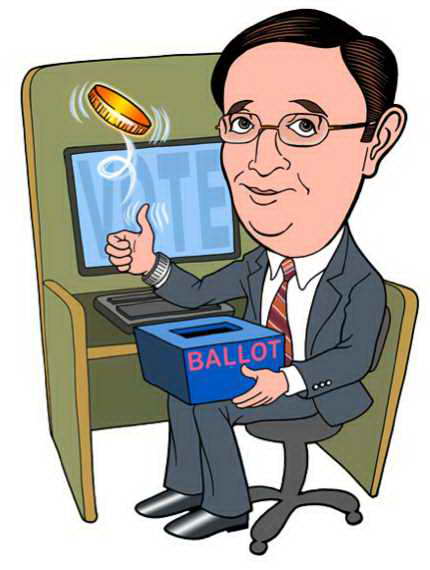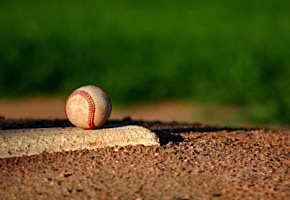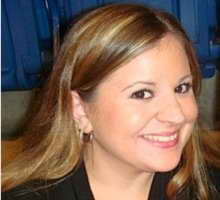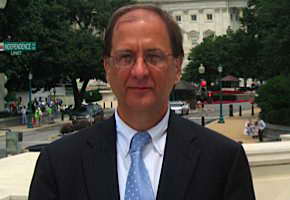By John Sparks
Carol Anne Riddell is a veteran reporter who specializes in issues dealing with children. She is also a mother. And, when she talked with the Marist Poll’s John Sparks, they discussed sports and what it teaches our children. Listen to the interview or read the transcript below.
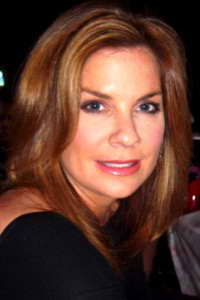
Carol Anne Riddell
John Sparks
Carol Anne, the Marist Poll did a survey asking about people’s favorite childhood sport. Did you play sports growing up as a child?
Carol Anne Riddell
Yeah, I did a bit. I guess my favorite things were probably tennis and lacrosse. I wasn’t terribly good, but I was very, very good, I’m still very good, at air hockey. I don’t know if that actually counts as a sport, though, but I enjoyed sports.
John Sparks
Did your parents get involved in watching you participate?
Carol Anne Riddell
You know, not so much. My parents were very busy. They sort of had their own lives. They did periodically. I also went to boarding school. So, that was a different kind of arrangement, because my parents weren’t there all the time. But they were not as involved in that way, I think, as I am as a parent now.
John Sparks
I know that you’ve heard some of the same horror stories that I have about parents who get overly involved in their children’s sports activities. You’ve got young kids, are you one of those who lives vicariously through the athletic abilities of your kids?
Carol Anne Riddell
You know, John, I mean I think we’re all a little bit guilty of that. My six-year-old daughter is a great soccer player, and I admit that I get a lot of pleasure out of watching her tear up the field. But, I think for me, it’s more about just seeing them excel, not necessarily in sports, but sort of in anything. My nine-year-old is a voracious reader. So, we talk a lot about books, and I feel the same way listening to his amazing vocabulary and his ability to recount stories to me as I do watching her play soccer.
John Sparks
How are parents to instill values of sportsmanship that we say we value when they scream at their kids and the officials on the playing field?
Carol Anne Riddell
I think the short answer is that we don’t. What you hear over and over about every aspect of good parenting is you got to role model. You have to behave yourself the way that you want your kids to behave, and we can tell them over and over again to play fair and be gracious when they lose, but if they see us screaming like lunatics and over-reacting to losses, then all of that what we’ve said is pretty much meaningless to them. I think another thing about that is that you can role model that good sportsmanship, not necessarily, just on the field, but if you’re watching a ball game together. It doesn’t actually have to be taught in the middle of a game.
John Sparks
Well, we are kind of trained that winning is everything. So, how do we deal with our kids’ disappointments when they come up on the losing team?
Carol Anne Riddell
It’s tough. We all want our kids to be the best at everything. It’s just … I think it’s part of our DNA as parents, but adults also know that disappointment is a part of life. And in a lot of ways, the real measure of who we are, what makes us who we are, lies in how we handle those hurdles. Do you give up when you lose, and do you walk away, or do you get back up, and do you try again? I think we have to teach our kids, and it’s obviously easier said than done, that losing makes winning all the sweeter. We have to praise them for the effort and not just the victory, and I also think we really have to praise them. It’s really helpful to them to point out when they handle a loss well because, let’s be honest, it’s just — it’s a lot easier to win than lose. Do you ever hear of a sore winner?
John Sparks
Now, you were telling me about instances in some kids’ leagues where everyone gets a trophy, and there are no losers. Is that really a good idea when the real world does not operate that way?
Carol Anne Riddell
I don’t think that it is. I think that it really teaches kids in a sense to be over-entitled as if they believe that they’re just entitled to win, and I don’t think that there’s a lot of work ethic in that. I really think, and this goes beyond just sports for me, so this is obviously an issue I have a strong opinion on, that which we’re creating this generation of over-entitled children, that they don’t see the sacrifice and the hard work that has to go into winning. And, if we don’t teach them that work ethic, then, they run the risk of growing into these adults who just want the BMW at the end of rainbow.
John Sparks
The other thing, there is such an emphasis on sports, especially professional and major college sports, that at a very early age, if a young boy or girl shows any athletic ability, the parents bring in paid professional trainers and coaches, and they carry through with select leagues all for the goal of getting an athletic scholarship or a pro contract. What kind of problems does this create?
Carol Anne Riddell
I got to say, I believe it’s just a whole host of problems. I mean obviously they’re going to be kids who are exceptional athletes, but the vast majority of them are not going to be turning pro anytime. So, as adults, we set them up to struggle against this very unrealistic expectation. I think that also when we as the grownups invest so much time and, by the way, so much money in things like private training and coaches, what we’re saying to our kids is this is what matters. And, what we should be saying to them is this is one of many things that matter. What about academics? What about citizenship? What about just being a good friend? I think we really have to ask ourselves, and again, I am not perfect at this: Do I want this for the good of my child, or do I want this for myself?
John Sparks
We glamorize professional athletes, and some of these folks that play in the professional league, their behavior is really reprehensible, even criminal sometimes, but yet they score touchdowns, sink buckets, hit a baseball 400 feet, and we look the other way. What does that really say about our values?
Carol Anne Riddell
Well, this one is sort of a sore subject for me, because I do really have a strong opinion. I think it is bad for kids and bad for adults to glamorize some of these celebrities who in so many ways model poor behavior, and I just — I think we have to be really discerning as parents. The kids are going to hear about the big celebrities whether we think they’re good role models or not, but there are sure sport figures who are in fact good role models. So, I think what we have to do, what I try to do with my kids is like figure out who some of them are in a sport that your child loves and, then, tell your kids why you like them. Maybe that celebrity is involved with worthy causes, or maybe they demonstrate good sportsmanship, or maybe they’re devoted to their families. The point is, I think we really have to teach our kids to look up to some of these figures whose values actually align with ours as opposed to just those who seem to be the most athletic, but their behavior otherwise may be questionable.
John Sparks
You know there’s another problem I see and that is I think that sometimes we as adults over-schedule our kids. I’m just curious, are you one of those soccer moms who spends a big part of your day making sure your child gets to the game and practice?
Carol Anne Riddell
There is so much I am guilty of as a mom, but so far that’s not my issue, at least not yet. However, my daughter’s starting a soccer league in the fall, so we’ll see if I end up following my own advice or not, for sure. I do feel like it’s important once they’ve committed to something that they be committed to it. That they show up. That they go to the practices they’re supposed to go to, but I have to say that I think a lot of our kids these days, and it’s not just with sports, it’s with lots of things, are just scheduled to the nth degree, and I’m not sure if it’s the best thing.
John Sparks
You know when I was a kid, a lot of us just played sandlot ball, no adults around. We got in fights. We had differences, but somehow that’s the way we learned to get along with another. Do you think perhaps that it might be good to let our kids go about being kids, and we as adults and parents stay out of it?
Carol Anne Riddell
I’d say absolutely, John. I mean I think some of the greatest life lessons that I ever learned were while I was playing kick the can with the kids in my neighborhood, but you know it was a different time and that was in Michigan, and I don’t have the luxury of sending my kids out into the parks of Manhattan to play a game of pick-up. So, I think we have to balance; sort of creating those opportunities for them to learn on their own with the practicalities of just raising kids in 2010. I do love those four words – Work it out yourselves, and I use them a lot around here.
John Sparks
Carol Anne, I really appreciate your time. Anything else you want to add on the subject of kids and sports?
Carol Anne Riddell
Yeah, just one other thought that I had, John, that I think has been really helpful to me is that I think it’s so important to teach kids about winning and losing really early on. And, one of the best ways, I mean it’s obviously not directly related to sports, but one of the best ways that I think we’ve done that is to play board games with them. You can play board games with kids of almost any age because there are things that appropriate for even very young children, and it allows you an opportunity to really teach them about winning and losing and for them to experience winning and losing. And, I think when they win a little bit, it becomes that much easier to lose the next time, because they understand what it is to win, and they understand that they can win again. So whether it’s like Chutes and Ladders or Candy Land or whatever it is, I feel like I started having those conversations with my kids about winning and losing at very young ages, and it hasn’t always been perfect, but I do think it starts to get the message to them very early on.
John Sparks
Carol Anne, I really appreciate it. It’s always good to talk to you.
Carol Anne Riddell
And, you too.
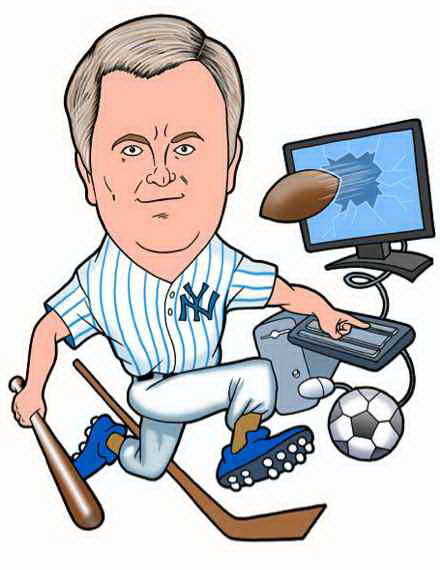 The dramatic close-up shots of the players, the shots of celebrities in the stands, and announcers talking about things other than the ongoing game are the things that I dislike most. I would like to see more shots of the entire field so I can see where the defense positions itself against different hitters in different situations. That doesn’t happen much.
The dramatic close-up shots of the players, the shots of celebrities in the stands, and announcers talking about things other than the ongoing game are the things that I dislike most. I would like to see more shots of the entire field so I can see where the defense positions itself against different hitters in different situations. That doesn’t happen much.


